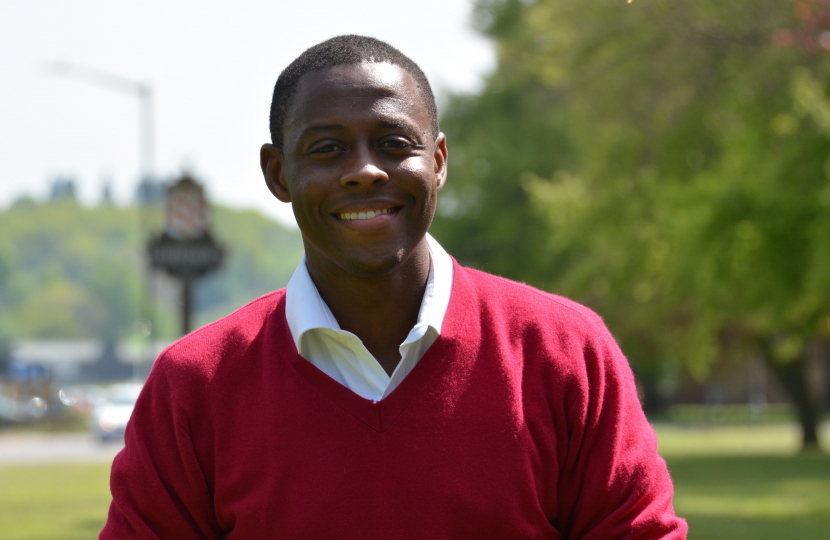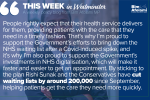
Article originally published in the print edition of the Herts Advertiser.
Over the Christmas period, laid up with a heavy cold as so many of us were, I sought refuge from the never ending requests from children and family members for me to either play with their toys (mostly the children) or play family games (mostly the children again) in books; as is my way. At the beginning of a new year, I thought it might be interesting to share what books I have been reading or re-reading. At times as tricky as these, there is much wisdom to be found in a good book. For the fiction lovers amongst you, I apologise for not providing any fiction books – one of my new year’s resolutions is to try and read more fiction, because it does broaden one’s experience of the world significantly. Not everything should be a book about history or economics, though most of the below are….
- Crashed by Adam Tooze – this book explains, quite intelligibly, the economics behind the Western world’s response to the financial crisis of 2008/9. For those of you who might think it is out of date – think again. I am yet to read a writer better informed on how the US federal reserve largely controls the international banking system, and is by far the most important central bank in almost every aspect they touch. This book really helps you understand so much that is never covered in newspapers – largely because very few journalists understand sufficiently what is really driving macroeconomic policy.
- The English and Their History by Robert Tombs. Robert Tombs is a rare thing – a top drawer academic historian who cares about writing history books that the general reader will actually read and understand. This book is a one stop shop for the entirety of English history, and he communicates our national story with verve, flair, and with a great deal of amusing and thoughtful anecdotes.
- The Hydrogen Revolution by Marco Alvera. I am beginning some serious work for the Government on how the UK can significantly increase our use of hydrogen in our economy; not just to de-carbonise, but to help create new industries and economic growth in many areas of the UK. This book, from one of the world’s experts on it, is a simple, clear read on the importance and opportunities that hydrogen offers the UK, Europe, and the planet.
- China v America by Sir Oliver Letwin. Oliver Letwin, former Conservative cabinet minister, is a friend and a seriously intelligent guy who cares a lot about how the world is going to navigate the next great geopolitical challenge of our time – the potential Cold War II between China and America. Oliver is lucid, thoughtful, and has produced the best analysis of the problem that I have read – and the opportunity that Britain has to help mediate the problem between these two superpowers.
- Story of the Country House, by Clive Aslet. Clive Aslet is the former editor of Country Life and the country’s foremost expert on country houses and their usage throughout British history. This is really a wonderful book. It takes us through the last 1000 years or so of the use of the country house, explains how and why the Great Hall developed, how they were designed and why, the nature of how these very public places gradually became private sanctuaries, and how country house owners have interacted with local communities through the ages. All with some fantastic detail about our great architects – Wren, Inigo Jones, Lutyens, and many more.
- The World, a Family History, by Simon Sebag – Montefiore. I was sceptical about this book, because I thought it was an absurd notion to write a family history of the world! I was wrong. Sebag – Montefiore, such an engaging historian, has managed to cram in such diverse families as the Medicis, Habsburgs, Romanovs, Saxe Coburg Gotha (or Windsors!), Bushes, and Bin Ladens and many more into a single history across the different continents in a way that somehow hangs together. I don’t know how he has managed it. But he has. Quite a light read in many ways but which also gives a wider sense of how family history really is the history of the making of our world.
- Collapse, Fall of the Soviet Union by Vladislav Zubok. Anyone who has become more interested in how Russia has managed to get to a place where it is engaged in such a damaging, awful and unnecessary war in Ukraine, led by such a figure as Vladimir Putin, should read this book. It shows how the Soviet Union fell apart form the perspective of Russians who lived within the system, and how the incompetence of Gorbachev made everything much worse. It gets under the skin of characters like Leonid Brezhnev, Eduard Shevardnadze (final Soviet Foreign Minister and later President of Georgia), and makes the case that nationalism in the regions outside Russia was the fundamental driving force behind the breakup of the USSR. It is a big book, and I haven’t yet finished it, but it is a riveting read.

